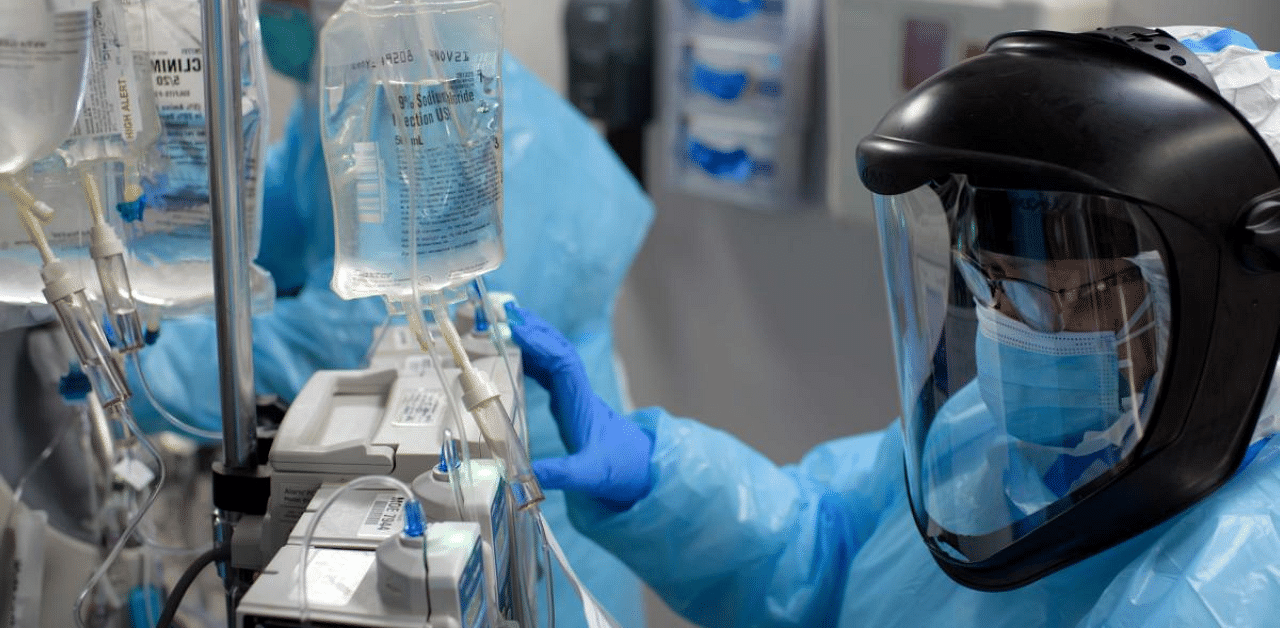
Adding an arthritis drug called baricitinib to Covid treatment regimens that include antiviral drug remdesivir might shave a day or more off recovery times, especially for those who are seriously sick, according to a study published Friday.
The findings of a government-sponsored clinical trial were made public more than three weeks after the Food and Drug Administration issued an emergency use authorization for the dual treatment. Earlier this month, some experts said they were uncomfortable deploying drugs without the opportunity to vet the underlying data supporting their performance. Last month, the World Health Organization also recommended against remdesivir as a treatment for Covid patients because evidence supporting its use was lacking.
Limited results earlier were announced via news releases, showing that hospitalized Covid patients treated with baricitinib and remdesivir recovered one day faster than those who had received remdesivir alone.
Some questioned adopting the combination treatment given baricitinib’s hefty price tag — which might be about $1,500 per patient — and also cited side effects like blood clots. Several doctors also wondered whether adding baricitinib would be worthwhile because steroids like dexamethasone were cheap and widely available. Both baricitinib and dexamethasone are thought to act by tamping down excessive inflammation, which drives many severe cases of Covid.
The new paper, published in the New England Journal of Medicine, adds some granularity to the findings, showing that certain subgroups of patients benefited from the addition of baricitinib far more than others. The trial enrolled more than 1,000 hospital patients with Covid, all of whom received remdesivir. People who were sick enough to require a high dose of supplemental oxygen or a noninvasive form of ventilation recovered eight days faster when baricitinib was included in their drug regimen.
In these groups, “I think the data clearly supports a role for baricitinib,” said Dr. Boghuma Kabisen Titanji, an infectious disease physician at Emory University who pioneered early studies of baricitinib against the coronavirus.
Titanji also noted that the data hinted that certain patients might be less likely to die or need a ventilator if they took baricitinib in addition to remdesivir. But these results, like the results that showed faster recovery times, weren’t uniform across the trial’s participants.
Dr. Lauren Henderson, a pediatric rheumatologist at Boston Children’s Hospital, said she was encouraged by the results and the prospect of having another option in the treatment arsenal against the coronavirus.
But she and several other experts added that they might still be inclined to default to dexamethasone as a treatment for severely sick Covid-19 patients who needed respiratory support.
Dexamethasone, unlike baricitinib, has been shown in studies to curb mortality in seriously ill Covid patients. It’s also inexpensive and easy to obtain, while baricitinib is considered more of a specialty drug, potentially posing supply chain obstacles, said Dr Erin McCreary, an infectious disease pharmacist at the University of Pittsburgh.
Several experts pointed to another National Institutes of Health trial that will conduct a head-to-head comparison of two combination treatment regimens: one that puts hospitalized patients on remdesivir and baricitinib, and another that pairs remdesivir with dexamethasone. McCreary also noted the importance of studying patients who receive both baricitinib and dexamethasone “to determine if there is incremental benefit.”
Dr. Andre Kalil, an infectious disease physician at the University of Nebraska Medical Center and the lead researcher on the new paper, noted that while dexamethasone had already become a widely accepted treatment for Covid-19, the steroid still needed further study. He cited “a multitude of serious safety issues” with the drug that warranted some scrutiny.
Like other steroids, dexamethasone, which broadly blunts inflammation, can come with a host of unwanted side effects, including exacerbating conditions like diabetes or osteoporosis.